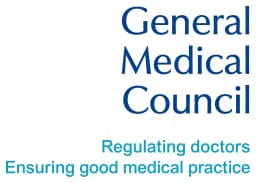Fast, Reliable Blood Testing in London
Comprehensive private blood testing in London. No GP referral needed. Fast, accurate results delivered to your secure portal.
All medical tests are overseen by a GMC-registered doctor. Abnormal results may require clinical follow-up.
Blood Tests
from £39
Most results from
24 hours

5K+
Happy Patients
24h+
Most Results
1,000+
Tests Available
Private Blood Tests London
Looking for private blood tests in London? At South Kensington Medical & Dental, our CQC-registered clinic at 20 Old Brompton Road, South Kensington (SW7) offers fast, reliable access to a full range of diagnostic blood tests. Avoid long NHS waiting times, book online, and receive results from as little as 24 hours.
All tests are analysed by UKAS-accredited laboratories, meeting the same standards used by NHS hospitals and leading private healthcare providers. From routine full blood counts and thyroid or liver function tests to vitamin levels and specialist hormone panels, testing is available without the need for a GP referral.
Private blood testing is straightforward and efficient. Book your appointment online, attend our conveniently located South Kensington clinic, and have your blood sample taken by an experienced, NMC-registered nurse. Results are delivered securely through our patient portal. You can browse individual blood tests or choose from our comprehensive health screening packages for broader insight into your health.
Individual Private Blood Tests (A–Z Coverage)
We offer 1000+ individual blood tests, including but not limited to:
General Health
- • Full Blood Count (FBC)
- • Liver Function Tests
- • Kidney Function Tests
- • CRP / ESR
Heart & Cholesterol
- • Total cholesterol
- • HDL / LDL cholesterol
- • Triglycerides
Diabetes & Metabolism
- • HbA1c
- • Fasting glucose
- • Insulin
Hormone Blood Tests
- • Thyroid (TSH, FT3, FT4)
- • Testosterone
- • Oestrogen & progesterone
- • FSH / LH
- • Menopause hormone panels
Nutritional & Fatigue
- • Vitamin D
- • Vitamin B12 & folate
- • Iron studies (ferritin, transferrin)
Specialist & Advanced Tests
- • Allergy blood tests
- • Autoimmune markers
- • PSA (prostate health)
- • Tumour markers (where clinically appropriate)
If you are unsure which test you need, discuss it with your GP — avoiding unnecessary testing while ensuring accuracy.
Pricing & Fee Transparency
We believe in complete transparency.
- Individual blood tests from £39
- Packages available for better value
A full price list is provided before booking.
Same-Day Blood Tests & Walk-In Appointments
- Same-day appointments available
- Walk-ins accepted (subject to availability)
- Early morning and evening slots
- Ideal for urgent or time-sensitive testing
For patients searching for same-day blood tests near me, our South Kensington clinic provides fast access without long waiting times.
How Private Blood Testing Works
Book online or attend the clinic
Blood sample taken by a trained professional
Samples sent to UKAS-accredited labs
Results delivered securely
Appointments typically take 10–15 minutes. If fasting is required (e.g. cholesterol or glucose tests), you will be informed in advance.
Fast Results
Who Should Consider Private Blood Tests?
Private blood testing is suitable if you:
- Want fast results without NHS waiting times
- Need regular monitoring for an existing condition
- Experience fatigue, weight changes, or unexplained symptoms
- Want a baseline health check
- Prefer confidential, private testing
Many patients book private blood tests near me for reassurance — even when feeling well.
Explore Our Blood Tests and Packages
Loading blood tests...
Popular Private Blood Tests
Our most requested blood tests for health monitoring and diagnosis
Full Blood Count
Complete blood cell analysis
£49
Thyroid Function
TSH, T3, T4 hormone panel
£89
Liver Function
ALT, AST, bilirubin & more
£69
Kidney Function
Creatinine, urea, eGFR
£59
Cholesterol Profile
Total, HDL, LDL, triglycerides
£59
Vitamin D
25-OH Vitamin D levels
£49
Iron Studies
Ferritin, iron, TIBC
£79
HbA1c Diabetes
3-month blood sugar average
£49
FAQs
Is there a private blood test clinic near me in London?
Do I need a GP referral?
How fast are results?
Can I choose individual tests or packages?
How much do private blood tests cost in London?
Do I need to fast before my blood test?
What blood tests should I get for a general health check?
Private Blood Test Clinic Near You – London
South Kensington Medical & Dental
20 Old Brompton Road, South Kensington, London SW7 3DL
- Minutes from South Kensington Underground Station
- Serving Kensington, Chelsea, Knightsbridge & Central London
If you're searching for a private blood test clinic near me, our central location offers speed, discretion, and accessibility.
Book a Private Blood Test in London Today
Take control of your health with private blood tests near you in South Kensington, London.
Meet Our Medical Team
Our experienced medical team is fully qualified and registered with the GMC and NMC, delivering safe, high-quality care in line with the highest professional standards.
Because our patients deserve nothing less.
Registered. Regulated. Trusted.
At South Kensington Medical & Dental, we are fully registered with the Care Quality Commission (CQC) and our clinicians are registered with the relevant UK regulatory bodies, including the GDC and GMC. Our dentists, dental nurses and medical professionals deliver care that meets the highest clinical, safety and ethical standards, because our patients deserve nothing less.





